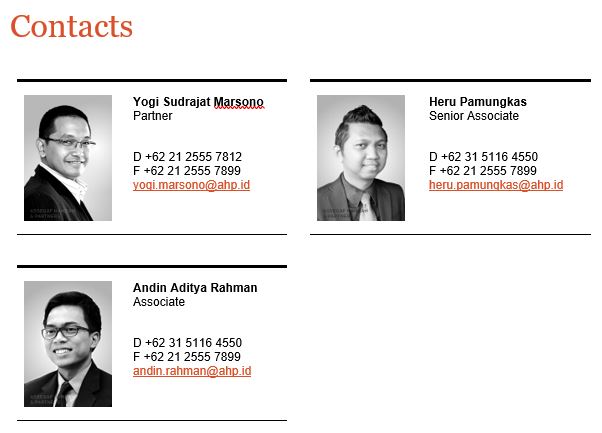Got a Generator? Here’s What You Need to Know
In most parts of Indonesia, just about every business owns a generator to keep electricity running in the event of a blackout. In fact, as evidenced by the widespread blackout in Java island in August this year, many of us relied heavily on generators for electricity, water, food and more.
It used to be the case that only generators above 200 kVA required a permit. Anything below must only be registered as evidenced by a registration certificate.
Now, the Minister of Energy and Mineral Resources has issued a regulation1 to revise the licensing requirements for the use of generators.
New Licensing Requirement
As a starting point, the Indonesian Electricity Law2 and its implementing regulation3 has always required an operational permit (izin operasi) for generators above 200 kVA if such generators are used for private purposes, which include utilisation as a main, reserve, emergency, or temporary power source.
Pursuant to the new regulation, users must only obtain an operational permit if they operate a generator above 500 kVA. This permit can be obtained from the Ministry of Energy and Mineral Resources (for multiple provinces) or the local government (for one province) via the Online Single Submission portal. Meanwhile, users of generators below 500 kVA are only required to submit a one-time report to the Minister of Energy and Mineral Resources or the local government.
Similarly, the law has always required the user of any power installation, including a generator, to obtain a commissioning certificate (sertifikat laik operasi). Previously, a commissioning certificate was a prerequisite for an operational permit. Now, a commissioning certificate is to be obtained from a third party certification institution after obtaining the operational permit.
Generator equals to or below 500 kVA is deemed to have automatically obtained a commissioning certificate if such generator has passed the manufacturer’s test results or obtained a product certificate or the equivalent product safety standard documentation.
Existing Licenses
Any operational permit and registration certificate issued prior to 6 September 2019 will remain valid until their respective expiry date, provided that there is no change to the use and capacity of the generator.
While the new regulation does not specify provisions related to existing commissioning certificates, we believe that they would also enjoy similar treatment and will remain valid until their expiry date.
Sanctions
Despite the change in the licensing scheme, the same criminal charges remain relevant for users operating a generator without an operational permit, namely maximum imprisonment of five years and maximum fine of IDR 4 billion. Meanwhile, failure to obtain a commissioning certificate may subject the user to maximum imprisonment of five years and maximum fine of IDR 500 million.
Businesses must note that these sanctions can be applied against the entity, as well as the individuals in such entity. While most cases of corporate liability are imposed against the directors, the government may also penalise factory managers and other key management.
In reality, the Constitutional Court has determined that the requirement to obtain a commissioning certificate is purely administrative, and as such, individuals cannot be imprisoned for operating a generator without obtaining such certificate. However, to this day, no judicial review has been requested with regard to imprisonment for individuals operating a generator without obtaining an operational permit, and as such, imprisonment may still apply for failure to obtain an operational permit.
Conclusion
The theme of the regulations recently enacted by the government seems to be the ease of doing business in Indonesia. Raising of the capacity of generator subject to licensing will certainly be welcomed by companies with lower capacity generator.
But if the objective is to promote doing business in Indonesia, it is imperative that the government conducts a thorough socialisation for businesses to ensure widespread awareness. In the past, many businesses do not even know that they were obliged to secure an operational permit and commissioning certificate for their generator. This, coupled with patchy enforcement across Indonesia, may cause businesses to be unduly harmed due to their lack of knowledge. As the entire licensing burden is imposed on businesses, the government needs to ensure that businesses are informed and protected.
- Minister of Energy and Mineral Resources Regulation No. 12 of 2019 on Capacity of Electricity Generator for Private Interest Based on Operational Permit.
- Law No. 30 of 2009 on Electricity.
- Government Regulation No. 14 of 2012 on Electricity Supply Business Activities, as amended by Government Regulation No. 23 of 2014

***
AHP Client Alert is a publication of Assegaf Hamzah & Partners. It brings an overview of selected Indonesian laws and regulations to the attention of clients but is not intended to be viewed or relied upon as legal advice. Clients should seek advice of qualified Indonesian legal practitioners with respect to the precise effect of the laws and regulations referred to in AHP Client Alert. Whilst care has been taken in the preparation of AHP Client Alert, no warranty is given as to the accuracy of the information it contains and no liability is accepted for any statement, opinion, error or omission.

